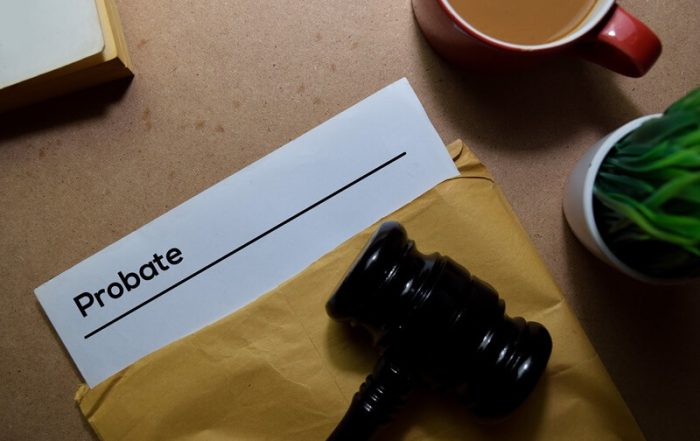How To Identify & Value Assets During Probate
How To Identify & Value Assets During Probate
Probate can feel like a maze of paperwork, decisions, and unfamiliar procedures. It begins with an inventory of assets, identifying and valuing them. Whether it’s a family home, a bank account, or a collection of rare art, understanding their value helps the administration process. When the decedent’s assets are clearly identified or accurately valued, it can streamline the process.
This article will guide readers through identifying and valuing assets during probate. Understanding these can help families avoid unnecessary conflicts and settle the estate smoothly. By the end of this article, you will have a clearer idea of how to proceed with asset identification.

Types Of Assets Going Through Probate
When a loved one passes, their estate may include various asset types. Each requires careful attention to identify and value. Understanding these categories is vital for managing the estate and distribution. Below are the main asset types that may be involved in probate.
Real Estate
Real estate is often one of the largest assets in an estate. This category includes homes, vacation properties, rental properties, commercial buildings, industrial facilities, and land. It usually requires a professional appraisal to establish their fair market value.
Appraisers assess the property using comparable sales, the property’s condition, and other market factors to determine its value. Locating any deeds or titles associated with the property is critical, as these will help transfer ownership to the rightful heirs.
Personal Property
Personal property includes various items such as jewelry, artwork, antiques, collectibles, and vehicles. These items can hold significant sentimental and monetary value, making it vital to identify and appraise them accurately. Unlike real estate, personal property lacks a clear market value, so appraisers may be needed to assess its worth.
Financial Assets
Bank accounts, retirement funds, life insurance policies, and investment portfolios are all considered financial assets. These assets must be located and valued during probate. Life insurance policies provide benefits to beneficiaries, but if overlooked, they may not be included in the estate.
Further, all accounts, such as checking, savings, and brokerage, must be identified. The estate executor must determine their balances upon the testator’s death.
Business Interests
Businesses must be another asset to include during probate. Professionals skilled in the industry and market must assess the value of a family business, corporate shares, or partnership interests. Accurate valuations ensure that the estate’s distribution reflects the full worth of the decedent’s holdings.
Intangible Assets
Intangible assets, such as intellectual property, patents, trademarks, and digital assets, are increasingly important in today’s digital age. Cryptocurrencies and online accounts can hold considerable value but often go unnoticed. These assets require careful identification and specialized valuation techniques.
Understanding these different categories of assets is critical for effective probate management. The next step is identifying assets to determine their value and ensure fair and equitable distribution among beneficiaries.
Identification Of Assets During Probate
Identifying assets is the first step in the probate process. While some assets, like a home or car, are easy to locate, others require careful effort and thorough investigation. It can be time-consuming, but ensuring a comprehensive and accurate estate inventory is vital.
Review Of The Decedent’s Financial Records
A good starting point is to review the decedent’s financial records. Documents such as bank statements, credit card bills, and past tax returns can provide valuable information. They may reveal accounts, investments, and assets that take time to be apparent.
These records may list account numbers, addresses, or even other assets the decedent owned but had not disclosed. It is an essential step in uncovering hidden or forgotten assets.
Tax Returns
Tax returns can serve as a goldmine of information. By reviewing the last filed return, executors or administrators may uncover income sources, financial accounts, or other assets. Pay close attention to capital gains, inheritance reports, and investment income. These can indicate property, investments, or interests that should be in the estate inventory.
Property Deeds & Titles
Property deeds and titles are critical for identifying real estate assets. These documents provide a clear ownership trail, whether it’s a family home, a vacation property, or vacant land. They also give information about the property’s legal description, location, and transferability.
Insurance Policies
Life insurance policies are often overlooked but are a key component of many estates. These policies name beneficiaries and specify payout values. It’s important to check with the insurer to locate any policies the decedent may have had, as these can add significant value to the estate.
By thoroughly reviewing financial records and documents such as tax returns, deeds, and insurance policies, many hidden assets will come to light. Once identified, the next critical task is determining the value of these assets.
Valuation Of Different Types Of Assets
Valuing assets is just as important as identifying them. The value of an estate significantly affects its division among heirs. Under California law, accurate valuations prevent future disputes and ensure fair distribution, maintaining harmony among beneficiaries.
Real Estate & Real Property
Real estate is often the largest asset in a probate case. A professional appraisal can determine the property’s market value, which is necessary for fair distribution. Appraisers use comparable properties to establish a value based on recent sales and market conditions.
Financial Assets
Stocks, bonds, and retirement accounts must be valued at the time of the decedent’s death. The closing price on the date of death easily determines the market value of publicly traded stocks. Financial institutions provide valuation statements for retirement accounts that specify the balance on that date.
Business Interests
Valuing a business can be complex and requires professional appraisals to accurately determine its worth. This process considers factors such as revenue, market trends, and assets. Valuation experts often employ industry-specific formulas and methodologies tailored to the business type, ensuring a precise and fair assessment.
Personal Property & Intangible Assets
Personal property such as jewelry, art, or collectibles may require a skilled appraiser. Similarly, they must value accurately intangible assets like intellectual property or digital assets (cryptocurrency, domain names, etc.). Though less tangible, these assets can carry significant value if assessed correctly.
Valuation ensures that every asset is accurately accounted for in the probate process. Once assets are properly valued, it is critical to remain vigilant about potential challenges that may arise. This proactive approach helps address any issues promptly and ensures a smooth probate process.
Challenges In Identification & Valuation
Asset identification and valuation are crucial steps in the probate process, but they are often more complicated than they seem. Several common challenges can arise during this phase, delaying or hindering an accurate estate distribution.
Unaccounted Or Hidden Assets
Some assets may be hidden or unknown to the executor or family members. These might include offshore bank accounts, valuable collections, or debts owed to the decedent. There must be proper disclosure to ensure the estate is not undervalued, leading to incorrect distributions.
Forensic accounting services may be necessary to locate such hidden assets. These professionals help uncover undisclosed assets, ensuring a more accurate valuation of the decedent’s estate.
Disputes Over Value
Disagreements over their value can arise even when all assets are accounted for. This is especially common with personal property, business interests, or real estate. Family members or beneficiaries may have differing opinions on what an asset is worth.
In such cases, having clear documentation and professional appraisals is vital. These can help settle disputes by providing objective and well-supported valuations.
Time Delays
Valuing assets such as real estate or business interests can be time-consuming. Appraisers may need access to properties, financial documents, or business records, which may take time to be available. These delays can prolong the probate process.
Executors must manage delays carefully to avoid unnecessary litigation or added complications. These challenges underscore the importance of careful planning and seeking professional advice during probate. The next step is understanding the legal procedures involved in asset valuation.
Procedures & Rules In Asset Valuation
The state’s probate code carefully defines the legal procedures for asset valuation during probate in California. Following these procedures ensures proper estate handling and reduces the risk of disputes or unnecessary delays.
California Probate Code
Under California law, all estate assets must be inventoried and appraised, including tangible and intangible property. The probate code mandates that the court supervise the asset valuation process, particularly in contested cases. It ensures transparency and fairness throughout the probate proceedings.
Court Supervision
When beneficiary disputes arise, the court may oversee the asset valuation process. Disagreements regarding the value of certain assets, such as real estate or business interests, can often occur. The court appoints an independent appraiser to provide a neutral, unbiased valuation to resolve disputes and value assets fairly for distribution.
Appraisal Process
Appraisers must meet specific qualifications set forth by the court. Their responsibility is to provide an impartial and accurate valuation of the estate’s assets. The court relies heavily on the judgment of these appraisers when determining the value of various estate assets.
This process guarantees that each asset is valued correctly and equitably for distribution among beneficiaries.
Timeline For Distribution
California law also establishes a clear timeline for asset distribution. After the executor values assets and pays off debts, they distribute the remaining according to the instructions in the will or trust. Executors must follow the deadlines set by the court to prevent unnecessary delays or complications.
Observing these legal procedures makes the probate process smooth and compliant with state law. The following section will discuss how the Los Angeles Probate Attorneys can assist clients with probate administration.
Los Angeles Probate Attorneys Supports Asset Identification
The law firm, Los Angeles Probate Attorneys, offers comprehensive legal services for individuals and families navigating the probate administration process. Our experienced team helps clients identify and value assets accurately, ensuring compliance with California law for each estate item.

We offer skilled guidance for finding hidden assets or challenging valuations, ensuring a smooth probate experience for clients. Further, we assist clients through each stage of probate administration, from initial filings to final distributions. Our services include inventorying assets, overseeing appraisals, and handling any disputes that may arise.
Clients trust us to provide transparency and clear communication, reducing stress and confusion during difficult times. What sets us apart is our personalized approach. We tailor our legal strategies to each client’s unique needs, providing customized solutions for every estate.
With extensive experience in trust and probate law, clients can rely on us for effective and efficient probate support.
Summary
Identifying and valuing assets during probate is critical in administering the estate properly. This process involves reviewing financial records, seeking professional appraisals, and following legal procedures set forth by California law. Understanding the types of assets, challenges, and valuation methods is key to a smooth probate process.
The Los Angeles Probate Attorneys assist with probate administration, from asset identification to accurate valuations and dispute resolution. Our experienced team helps clients manage probate efficiently, allowing families to focus on what matters most during this challenging time.








